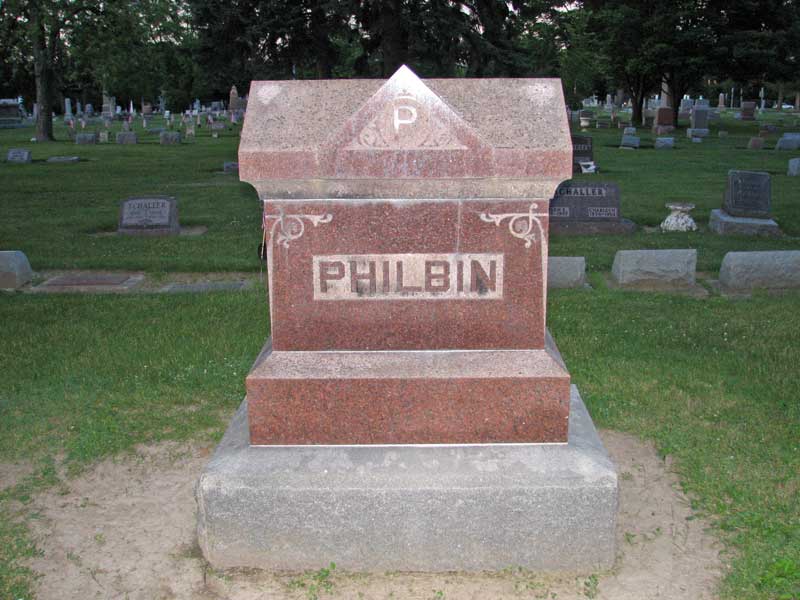Our Town
We saw Our Town by Thornton Wilder last night in the outdoor Elizabethan theater. I thought I remembered seeing this play sometime when I was in high school, but maybe I only read it.
It’s a 3-act play set in the small New Hampshire town of Grover’s Corners, in the years between 1901 and 1913. From the start, a couple of oddities strike you. The set is completely bare. I read that Wilder specified this because he wanted the personal interaction to dominate the audience’s consciousness. The other device that jars you is the presence of a meta-character called Stage Manager, who introduces the play, shepherds the plot along and offers other commentary. It’s as if one of Shakespeare’s Prologues was the nephew of the director, and got a longer part written for him as a result. The danger of this device is that one might suspect that the Stage Manager is there to rescue what otherwise is weak dramatic material.
I think the intent, however, is to provide an emotional buffer between the audience and the characters, to make the experience of this play more of an academic exercise in anthropology and psychology than an immersion in plot and circumstance. This is reinforced at some point when the Stage Manager brings forth a professor to elucidate the historical development of the town. (this hits a comic moment when the professor chooses to start his narrative in the Pleistocene Era).
In snippets I’ve read from Wilder about the play, he’s making a concerted effort to move away from the particular and towards the universal, and these two devices (the bare set, the Stage Manager) seem to be part of that effort. I have to say that it works very well. We’re left with the bare facts of how generations accrete: two families raise two children, those children meet, court and marry and eventually everybody dies. (the last scene is set in the town graveyard.
From my memory of the play, I was expecting something of a Norman Rockwell painting of small town life, and I suspect it may have been staged that way the time I saw it. If I actually saw it. And you do get a sense of generational and social connection peculiar to small towns. But you also see, and the playright intends for you to see, how people’s expectations get cropped in order to fit the mold. We only see one person who actually moves away, and the “out West” he moves to turns out to be Buffalo. Another character that doesn’t fit, the church choir director, town drunk who evinces some thwarted artistic airs, commit suicide and is judged to “not be made for small-town life.”
The graveyard setting is the third strange aspect of the play. It shows that everybody eventually leaves town, one way or the other. Death doesn’t seem to be a strictly binary experience. The folks in the graveyard can still observe life in the town. But their interest in the events of the living seems to fade as their responsibility for influencing events is relieved. A newly-dead character, not yet inured to this separation, wishes to relive a day of her life. The more experienced dead advise her against it, but she returns anyway and is taken aback at how absorbed in the quotidian, the everyday, the living are, and returns to her grave unsatisfied. The lesson we’re to take from this, I guess, is to try to maintain a heightened awareness during our brief days.


Very nice synopsis and analysis, Phil. I agree with it in its entirety. I have both read and seen Our Town, but it’s been so long ago I can barely remember. Hence my agreement with your synopsis and analysis may be unduly colored by the passage of time. Sorry to see your tombstone, by the way, but glad it appears to be made of a sufficiently high quality granite to befit your contributions to mankind.
Thanks, John. I don’t think I said anything new, I was just hashing it out in my head. The tombstone actually stands sentinel over several Philbin graves, in cemetery in a town a lot like Grover’s Corners. I walk through there sometimes and see all the old, familiar family surnames from my growing up there, like they’re whispering.
I’ve always liked Our Town, even if it is one of those high school requirements.
Wasn’t there a TV version with Hal Holbrook as the stage manager?
Yes! IMDB says yes. In 1977.
That’s a tombstone that says, “Whistle past THIS!”
There are some fine observations in your review, thank you, but the real gem is that we all think we’ve seen Our Town and really can’t remember where. Was I forced to see it in school? Was it in a movie? A church play? KathyR’s 1977 version is probably what I saw, but I almost don’t want to know. It’s such Americana that it’s passed into our subconscious fibers like carbon tetrachloride.
Well–what a fine, civilized thing to be doing, watching a whole weeks’ worth of plays in Ashland! Enjoy. And this our life, exempt from public haunt/finds tongues in trees, books in the running brooks/sermons in stones and good in every thing. (As You Like It)
Plus, we always get Our Town and Spoon River Anthology mixed up. At least I do.